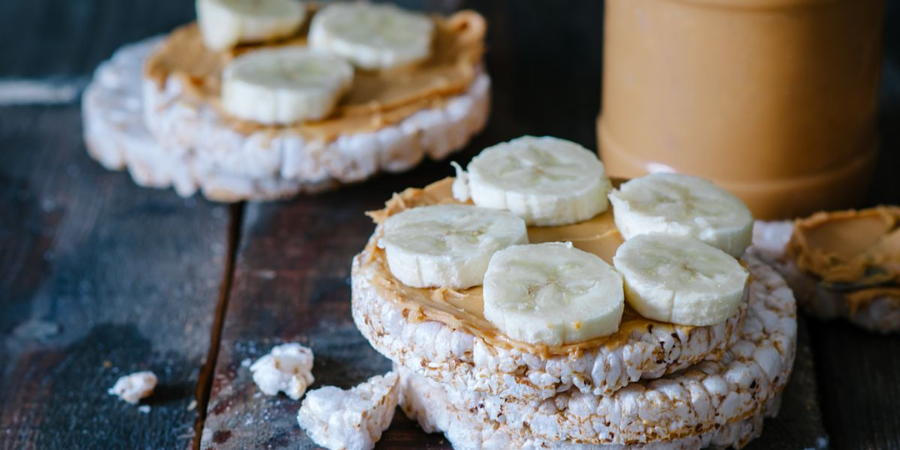Rice cakes have become a popular snack option, especially among health-conscious individuals. But the question remains: are rice cakes healthy? In this article, we will explore the nutritional profile of rice cakes, their benefits, potential downsides, and how they fit into a balanced diet.
What Are Rice Cakes?
Rice cakes are made from puffed rice, which is cooked and then compressed into a cake shape. They are often gluten-free, low in calories, and come in various flavors. But what do they offer nutritionally?
Nutritional Profile of Rice Cakes
To help answer the question are rice cakes healthy, here’s a quick overview of the nutritional content of a standard plain rice cake (about 9 grams):
| Nutrient | Amount per Rice Cake |
|---|---|
| Calories | 35 |
| Carbohydrates | 7.3 g |
| Protein | 0.7 g |
| Fat | 0.3 g |
| Fiber | 0.1 g |
| Sodium | 0 mg |
Are Rice Cakes Healthy?
To determine whether rice cakes are healthy, we need to look at their benefits and drawbacks.
Benefits of Rice Cakes
1. Low in Calories: Rice cakes are low in calories, making them a great option for those watching their weight. They can be a satisfying snack without contributing significantly to your daily caloric intake.
2. Gluten-Free Option: For individuals with gluten sensitivities or celiac disease, rice cakes provide a safe and tasty alternative to traditional bread and snacks.
3. Versatile Snack Base: Rice cakes can be topped with a variety of healthy options, such as:
- Nut butter (peanut, almond, or cashew)
- Avocado
- Hummus
- Greek yogurt
- Sliced fruits (bananas, strawberries, or apples)
This versatility allows for a range of flavors and nutrients, enhancing their overall health benefits.
4. Quick Energy Source: Due to their high carbohydrate content, rice cakes can provide a quick source of energy, making them ideal for athletes or those needing a pre-workout snack.
5. Low in Fat: Rice cakes are naturally low in fat, which can be beneficial for those looking to reduce their fat intake.
Potential Downsides of Rice Cakes
- Low Nutritional Value: While rice cakes are low in calories, they are also low in essential nutrients. They lack significant amounts of protein, fiber, vitamins, and minerals. This means they should not be the sole component of your diet.
- High Glycemic Index: Rice cakes have a high glycemic index (GI), which means they can cause a rapid spike in blood sugar levels. For individuals with diabetes or those trying to manage their blood sugar, this can be a concern.
- May Lead to Overeating: Because rice cakes are low in calories but not very filling, it’s easy to consume several in one sitting. This can lead to overeating, negating their low-calorie benefit.
- Additives and Flavors: Many flavored rice cakes contain added sugars, salt, and preservatives. Always check the ingredient list to ensure you are choosing the healthiest option.
How to Incorporate Rice Cakes into Your Diet
Balanced Meal Ideas:
To maximize the health benefits of rice cakes, consider these meal ideas:
- Breakfast: Top a rice cake with Greek yogurt and fresh berries for a nutritious start to your day.
- Lunch: Use rice cakes as a base for an open-faced sandwich with avocado and sliced turkey.
- Snack: Pair rice cakes with hummus or nut butter for a satisfying and healthy snack.
Portion Control
To avoid the pitfalls of overeating, practice portion control. Limit yourself to one or two rice cakes per serving and pair them with protein or healthy fats to enhance satiety.
Real-Life Examples
Athlete’s Perspective: Many athletes use rice cakes as a quick energy source before workouts. For example, a marathon runner might consume a rice cake topped with almond butter for a boost of energy without feeling weighed down.
Dietitian’s Take: Registered dietitian Sarah Smith recommends incorporating rice cakes into a balanced diet but emphasizes the importance of pairing them with nutrient-dense toppings. “Rice cakes can be a great snack, but they shouldn’t be the only thing you eat. Pair them with protein and healthy fats to create a balanced meal,” she advises.
Conclusion: Are Rice Cakes Healthy?
In conclusion, rice cakes can be a healthy snack option when consumed mindfully and paired with nutritious toppings. They offer low calories, versatility, and quick energy, making them appealing to many. However, their low nutritional value and high glycemic index are significant factors to consider.
Key Takeaways
- Low in calories but also low in essential nutrients.
- Versatile and can be topped with healthy options.
- High glycemic index may affect blood sugar levels.
- Practice portion control to avoid overeating.
Ultimately, rice cakes can be part of a balanced diet, but they should not be relied upon as a primary food source. By understanding their benefits and limitations, you can make informed choices that support your health and wellness goals.
Final Thoughts
So, are rice cakes healthy? The answer is yes, but with caveats. Enjoy them as a part of a diverse and balanced diet, and you’ll reap the benefits without falling into the pitfalls.
